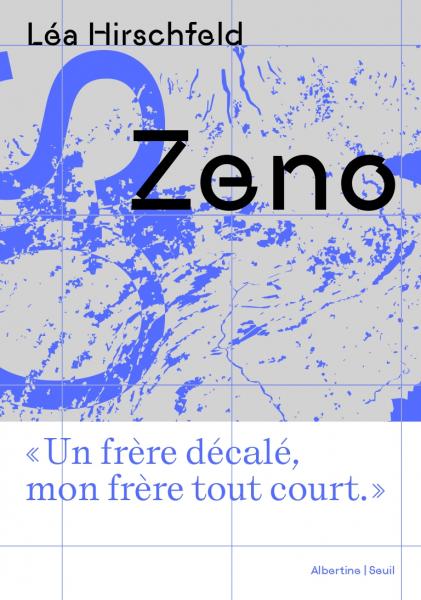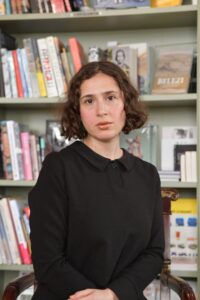Zeno by Léa Hirschfeld

In her deeply moving debut, Zeno, Léa Hirschfeld finds unexpected nodes of divergence and similarity among differently abled people. The book is autofictional, somewhere between narrative and story. It follows Léa as she grows up in the shadow of her older brother’s disability. She loves her brother but she feels unable to connect with him and she is acutely aware of the stares, the comments, and the judgement that other people direct towards her family. Early on in the book, she reflects on the thorny problem of selective abortion in cases of fetal abnormality. Although she supports abortion for everyone, she wonders how we could create a world where such choices felt less obvious. What kind of support structures would be needed, what kinds of community, what form of broad social integration, to make new parents feel equipped to care for a child so differently abled than themselves?
She finds the answer partially at an idealistic commune in Vermont where she and her brother start spending summers. The titular Zeno Mountain Farm, this retreat offers a chance for people with cognitive or physical disabilities, chronic illness, cancer, and so on, to mingle freely alongside people without disabilities. Instead of caretakers and dependents, they are friends. They can do sports, go for picnics, watch films, play music, and so on, each activity designed liberally to accommodate as many as possible. At a restaurant, they order spaghetti bolognese blended up for participants who are unable to chew solid food. The server is first puzzled and then acceptant, faced with this diverse group.
Hirschfeld uses the term “décalée” (or out of sync) throughout the book, rather than the more common “handicapée.” This notion of synchrony resurfaces throughout as her expectations and assumptions about the world are consistently challenged. It offers us a literalized metaphor for the phenomenon she is experiencing: two ways of being and relationships to time and space that both exist in parallel and radically diverge.
In interviews, Hirschfeld has described the Covid-19 pandemic as the lynchpin for this story. This is also where the book ends. Although she had spent so many summers at Zeno, it was only during the quarantine lockdown that she developed a relationship with her brother that felt truly egalitarian, rather than a relationship of caretaking or alienation. She wrote a short personal essay about the experience and received a flood of responses from other relatives, friends, or spouses of disabled people. With this cacophony of voices, she started a podcast, which has featured both people with different kinds of disabilities and people living in their communities.
It is harder to achieve such radical polyphony in a book and Hirschfeld instead narrates Zeno in a close first person. Through her eyes, our view of the world also rapidly expands and she is able to confront difficult questions about her own reactions and prejudices with honesty and vulnerability. In one scene, a camp participant who is supposed to avoid sugary foods for medical reasons asks Léa to bring him a donut. She demurs but realizes that she would never have felt comfortable making such a choice on behalf of a non-disabled person. I never thought you would treat me this way, Léa, he tells her. There is no right or wrong decision.
A startling and expansive first novel like none other I’ve read.
Zeno by Léa Hirschfeld, Albertine | Seuil


